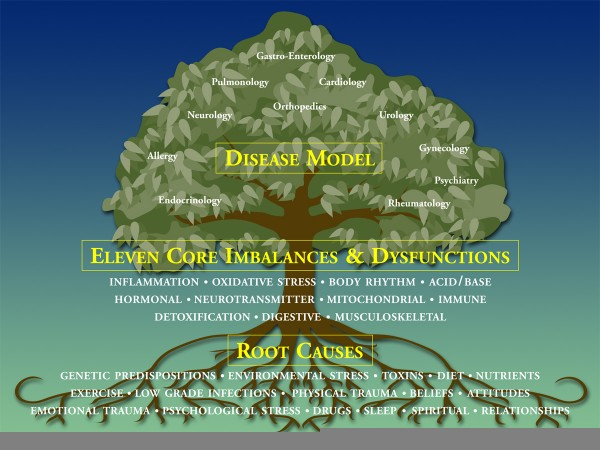
Quick Overview
Immunitone Plus™ is an herbal formula that is designed to support healthy immune system function during cold and flu season. It contains herbs that...

Thomas Edison's description of the future doctor may seem far from what you or I have experienced in the mainstream medical world. But I believe health care is evolving almost uncontrollably into this vision. As information, technology and science evolve and progress, it is inevitable that our practice of science and medicine would evolve as well.
Traditionally, medical doctors have been trained to diagnose and treat acute trauma, short lasting illness and urgent care need like fractures and infections. There is great medical value in these things. Our advances in medicine in the last century have lengthened our lifespan and eradicated many diseases. There is no arguing the value in this aspect of medicine and health care.
Unfortunately, this acute-care approach to medicine falls short when it comes to preventing and treating complex and chronic disease. According to The Institute for Functional Medicine "most physicians are not adequately trained to assess the underlying cause of disease and to apply strategies such as nutrition, diet and exercise to both treat and prevent these illnesses in patients." Out of this shortcoming, now in the 21st century has emerged a more complete approach to the health issues that plague modern man and society. This approach that better addresses these needs is known as functional medicine.
Functional medicine understands the origins, prevention and treatment of chronic and more complex diseases. Functional medicine has an understanding of how environmental inputs affect health and balance in the body. Certainly it is easier to prescribe the drug that has been ascribed to any particular diagnosis and eliminate the symptoms. But without truly uncovering underlying causes for illness, we never achieve true healing. Functional medicine gets down to the root cause of disease and imbalance and addresses those issues.
Functional medicine is the natural progression of our physician into the doctor of the future. And that physician is one who gives patient-centered care; has an integrative, science-based health care approach; and who integrates the best medical practices from available modalities and approaches. Notice I said science-based. Functional medicine is not merely "alternative" medicine. Functional medicine is integrative and combines our best Western medical science with things like Chinese medicine, therapeutic diets and stress management techniques. These too have scientific basis and have been tested.
 8 Underlying Disease Precursors Addressed in Functional Medicine
8 Underlying Disease Precursors Addressed in Functional MedicineThe caveat to this comprehensive approach to health is that most imbalances in body functionality can be restored or at the least can be substantially improved by addressing all factors. Prevention of disease then becomes the foundation for health care. And a newfound partnership between patient and doctor fosters a sense of self-responsibility that evokes change and improved results.
Where does one find a functional medicine doctor? That's a good question. I'm fortunate enough to live in Northern California and work with some leading doctors in the field of functional medicine like Dr. Datis Kharrazian and Dr. Len Saputo. The Institute for Functional Medicine provides a directory of doctors across the United States who practice functional medicine. But I think it's also important that we influence the practitioners we already know to move in this direction. Communication with your physicians, if they give you the time to speak, can be effective in building the sort of partnership relationships with our healers that will cause them to listen and hear what is really going on in our lives and with our health.

Immunitone Plus™ is an herbal formula that is designed to support healthy immune system function during cold and flu season. It contains herbs that...

We have been examining the function and disorders of the thyroid gland, the butterfly shaped gland just below our skin and surrounding our throat. As we get older we...